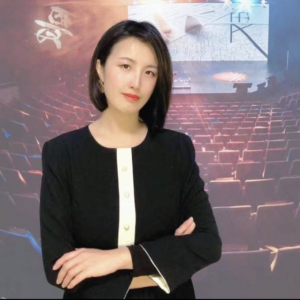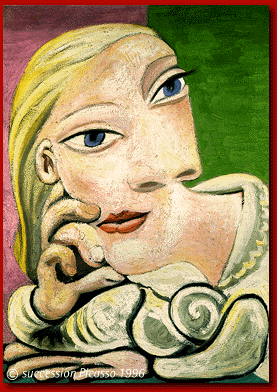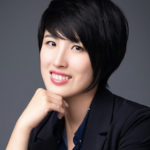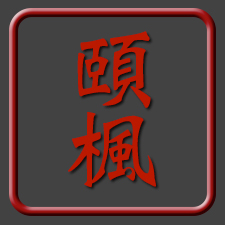At the end of 2015, I had the opportunity to attend the TED Global Conference in Geneva.
During a break, I went to the bar and asked for a cup of coffee. At that moment, a middle-aged man, tall with a bushy beard, approached. We exchanged greetings and introduced ourselves; he told me that he was a life coach.
He came to a stop and looked me in the eye, asking,
“What is special about you?”
 I was taken aback because it was the first time I’d been asked this question, and I kept silent for a while.
I was taken aback because it was the first time I’d been asked this question, and I kept silent for a while.
Am I special? When I was a child, even though I got a perfect grade or first place, my parents never praised me but said, “Mengjia, you are not doing well enough, you should have studied harder, like Emily.”
When I got an offer from Zhejiang University, they said, “You should have done better, at Qsinghua University”. When I got my Master’s Degree, my mom said, “You should continue studying for a Ph.D. like Andy.”
Finally, I responded: “I don’t think I am special.”
“Everyone needs to find something special. Look for what is special in you; that is the key question for a better life,” he said with a smile.
What makes me special?
This question kept ringing in my head.
For the next two years, I was assigned to work as a material engineer in Milan, Italy. I felt special, because I was one of the few Chinese engineers, and even more unique, as a woman engineer.
When I finished my assignment and returned to China, I realized I was not special anymore. In a metropolis like Shanghai, having an advanced educational background and overseas experience and so on is nothing out of the ordinary.
Faced with the uncertainties of my career and a rapidly changing domestic society, as well as about 30 anxieties, I was stuck at a crossroads in my life.
“Mengjia, you are nothing remarkable compared to your peers,” I told myself, feeling a lot of peer pressure. “What makes me special?” The question came up again and again in my mind.
One day, as a former TEDx organizer, I received an invitation email from TED. Why not do it again? My eyes were shining.
As one of the few people qualified to host a TEDx event with more than 100 participants, that might make me special. So, I started a new TEDx journey.
From a cold start, 0-1, I set up a volunteer team, fundraised, invited speakers. Except for work, all my spare time was occupied—a very tough period, but fulfilling.
After several months’ efforts, we came to the first event: in a famous theatre in Shanghai, with an audience filling the space. I followed the tradition, and as curator assumed the role of host. I was so nervous. It was my first-time hosting in such a big hall, with over 700 people in the audience.
I could feel my heart beating. My mind was blank when I went on the stage, with the lights focused on me. I read the card in my hand with a trembling voice.
Every second I had my heart in my mouth, just afraid that something bad would happen. Thank God, the event finished smoothly! I lifted the weight from my mind. I had finished a special event!
Finally, I could use the phone and read the audience response, with hundreds of messages.
“Yes,” they said, “The event was excellent, the content was incredible, the speakers were so great and inspiring,” only (some said) the host was so bad — the host, me!
“Yes, she is not professional. She is the worst part of the event, she looks so weird,” someone commented.
These words, like a sword, pierced my heart. The feeling was like giving birth to a baby after ten months of being pregnant, and then being told that the mom is terrible.
I heard the voice inside of me, “Mengjia, I told you — you are not special, and not good enough.”
But in the following days, I received many more messages and feedback.
From the speakers: “Mengjia, yesterday was the most unforgettable stage in my life. Thanks for giving me the chance to make my ideas heard, and to influence others.”
From the audience: “Thanks for your event; it enlightened new life in my most challenging moment. You made the impossible — possible. That is your superpower, and so inspiring!”
From volunteers: “I feel it was the most valuable experience in my university life. I want to be a person who can make an impact like you in the future.”
Those words gave me a lot of power and I felt full of energy again. I started to think about why I cared so much about the negative feedback, and what others thought.
Should I be special by making a difference for others, instead of looking for praise from them?
With that question, I came to my mentor, Michael, a wise person, I believed.
 He said “Mengjia. I would like to share you a story with you.”
He said “Mengjia. I would like to share you a story with you.”
“When Picasso was a boy, his mother said, “You are a gifted child, Pablo. If you become a lawyer, you’ll definitely be the Chief Justice of the Supreme Court. If you become an architect, you will be the architect who creates the most brilliant structures. What do you want to be?”
“I want to be Picasso,” he replied.
He became Picasso as you know, the most famous figure in contemporary art.
“Now it’s your turn, Mengjia. What do you want to be?” he said.
“Mengjia!” I blurted out.
“Yes, Mengjia, you got it. You are special because you are Mengjia. The universe can just handle one Mengjia!”
I was awakened in this eureka moment.
Yes, I am special, not because of how well I studied, nor because I am a fantastic host or curator — but because of myself! I am Mengjia, the only Mengjia in the world!
I don’t need to become exceptional, just to be myself.
We tend to become the “ideal person of other people’s children.” Is this, however, our genuine self?
We are all born with many talents, and shine because of them. Every aspect of your life experience has shaped the distinctive you.
Dear toastmasters: you are special, and you are unique in the universe.
…Ma Mengjia, Shanghai; April 2022



